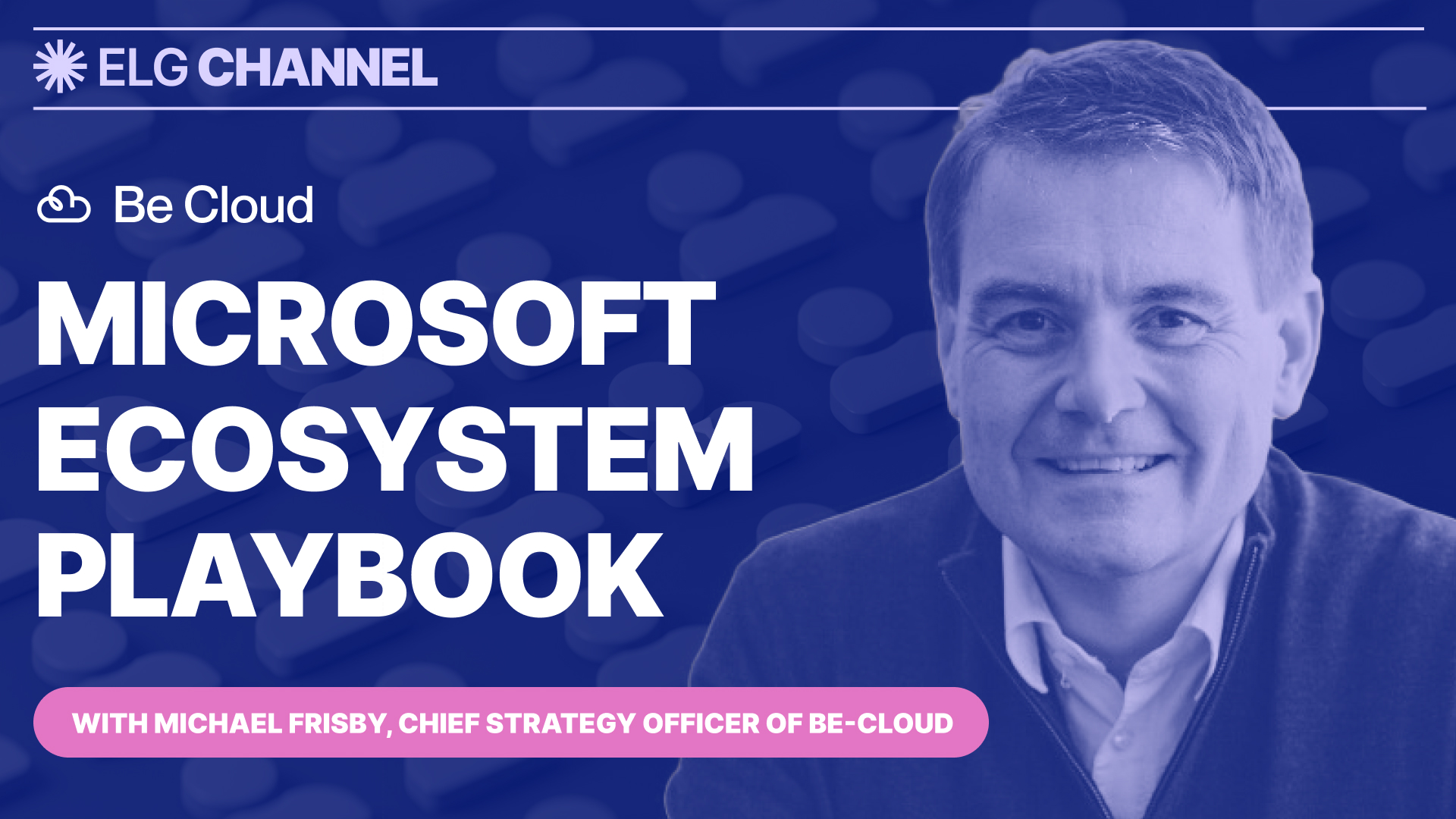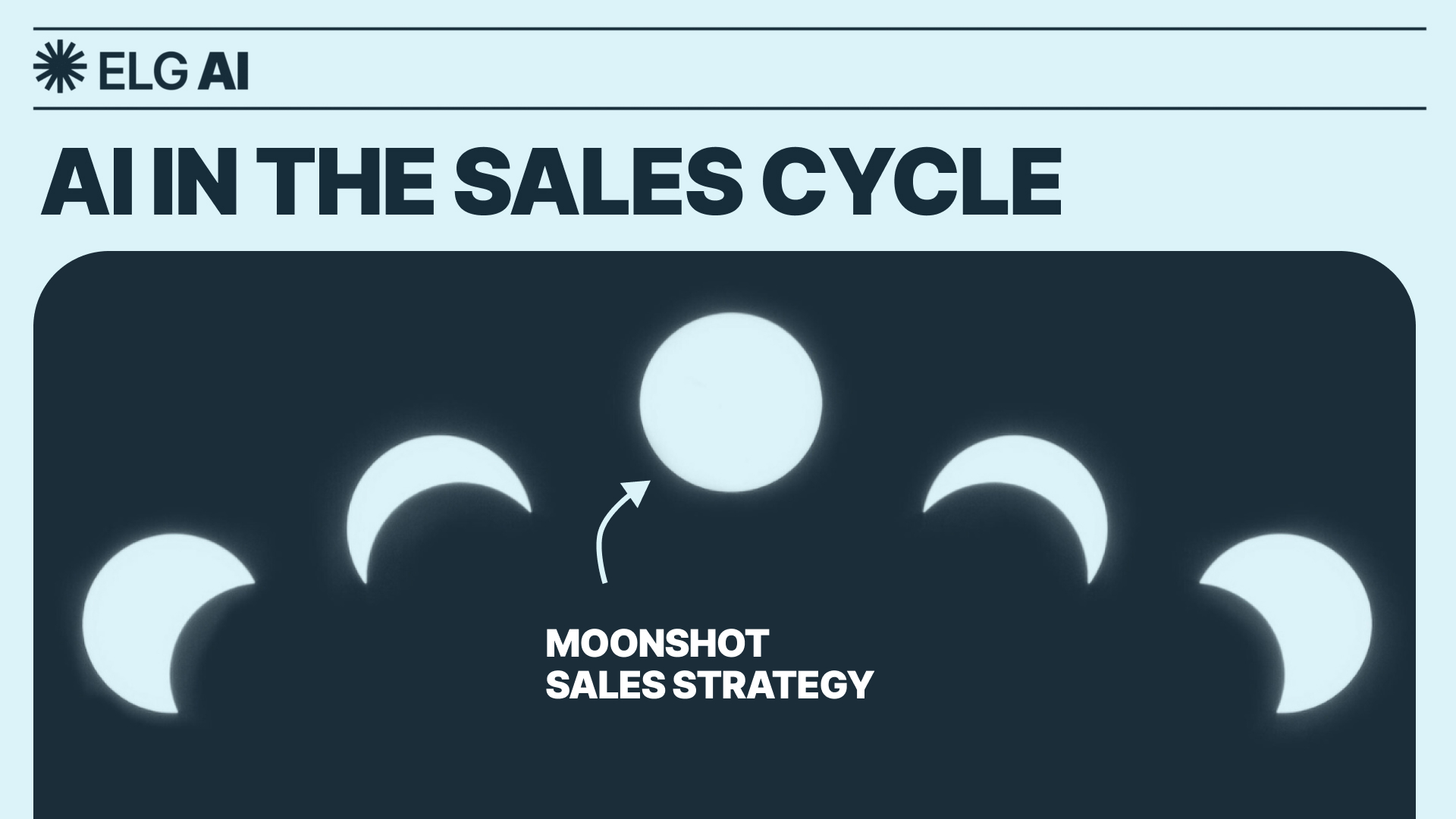How to get your sales team excited about co-selling with partners by speaking to them through the lens of their quarterly goals.

September 30, 2021
“This partner’s going to help us strengthen our positioning in the ecosystem,” might sound awesome when you hype yourself up in the mirror, but when you’re trying to get your sales team excited about co-selling, you’re going to need to speak to them in terms they care about.
“[The asks] are always more successful if [the partner manager] can link it back to how that’s going to help [sales] drive revenue,” says Aaron Huish, Senior Sales Manager at Spirable, a creative performance platform.
“There’s nothing better than a very good success case,” says Agnese Kalnina, Partnerships Team Lead at Lokalise, a localization and translation management platform. “Put it in the salesperson’s perspective. Your sales reps can get a bigger deal if their customers use an integration. For example, customers using Lokalise may need a bigger plan because they’ll need to use our partners’ tools in multiple languages.”
You need to convince your sales team that partnerships are worth their time, and hypothetically that should be easy. Working with partners can help your sales team hit their goals faster and even advance their career. If your sales reps express disinterest in working with partners, it might just be an issue of how you’re communicating the value of partnerships rather than what you are communicating. Your goals include growing your ecosystem, but your sales team’s goals tally up to one thing: hitting their quotas.
We put together a little exercise to help you shift into a sales mindset and communicate more effectively with your sales reps. That includes:
- The partnership ask (what you would normally request of your sales rep)
- What your sales team thinks (their thoughts when hearing your request)
- What you should say instead (how you can reword your request to resonate with your sales rep)
Get your pen and paper ready:
—
The partnership ask: “Hey, join me on this pitch call with our new strategic partner?”
What your sales team thinks: “Another hour-long meeting on my calendar that could be spent following up with prospects. Do I really need to be in this meeting?”
What you should say instead: “Hey, I noticed you have a ton of accounts in common with this partner. You’re in a great position to team up with them to close deals with X, Y, and Z. Join me on this pitch call, and come ready with one or two questions about these accounts so we can get you some of the information you need or set up a meeting with the partner’s sales rep right away. I want you to be the point person this partner will reach out to for every new opportunity that comes up.”

Tip: Map accounts with your partner before you decide which sales rep to bring on the call. The rep who has the most strategic overlaps with the partner should be your pick for the call. Then, approach that rep with a handful of accounts that they could work with the partner on and some stats or success stories that show just how effective co-selling with partners can be.
—
The partnership ask: “Could you set up a recurring call with our partner’s sales rep to update each other on your shared opportunities every other week?”
What your sales team thinks: What are the chances our partner’s sales rep can actually help move the needle on these deals? Am I going to have to carry all the weight and help them out on their deals and get nothing in return? How do I even begin to make these recurring calls worth my time? Also, if I have to be on one more Zoom call, I’m going to lose my mind.
What you should say instead: “Here’s a list of all of your prospects who overlap with this partner’s opportunities and customers. I’d like you to set up a recurring call with the partner’s sales rep and come ready with questions that can help you accelerate a handful of these opportunities during each call. I’ve spoken with the partner, and their sales rep is going to come to these calls prepared. Keep me updated on how helpful the partner’s sales rep is to you, so that I can match you with someone else if it doesn’t work out.”

Tip: Offer management by objectives (MBO) bonuses for taking a specific number of calls with a partner, closing a number of deals with the partner, or turning their named accounts into opportunities with the partner. Use the MBO bonuses to influence a behavioral change among your sales team, and then adjust the bonuses over time or phase them out.
—
The partnership ask: “Hey, could you tell me where you left off on working with our partner on this particular deal?”
What your sales team thinks: I haven’t had time to follow up with my partner since I’m working on X other deals. Or, I haven’t had time to update you since I’m working with my partner on closing the deal.
What you should say instead: “Hey, what’s the status of the opportunity you’re teaming up with X partner on? Is the partner helping you? If they’re not, let’s chat about the best process going forward. If they are, I’d love to share and celebrate your progress with the rest of the internal team and show them the great work you’re doing.”

Tip: Ask your rep for updates, while giving them more information that could help them move the opportunity forward. Bring something to the conversation. Map accounts with all of your partners to identify new opportunities for your sales rep to reignite the conversation with the rep they were speaking with previously. For example: If you identify that the prospect is using a new tool or agency, this is critical information that your sales rep and your partner’s sales rep could use to sell their integration or joint solution. Together, the sales reps could strengthen their sales pitch by mentioning use cases specific to the prospect’s tech stack. Or, they can ask the agency partner to recommend their integration or joint solution.
Additionally, establish a process for your sales reps to update you and the sales leaders on the momentum of their deals with partners. This could mean requesting that your sales reps send updates in a dedicated Slack channel, hosting a partnerships and sales meeting where each rep reports on their progress with partners, or creating a field in Salesforce for your sales reps to write notes. If you’re going the Salesforce route, make sure to define how you’d like your sales reps to write their notes and when. For example: provide them with shorthand so that all of your sales reps’ notes are consistent, you know the exact status of the account, and you know which phase of the sales cycle the account is in.
—
The partnership ask: “Tell me which accounts you need help with.”
What your sales team thinks: The more people I bring in to help, the less responsible I am for the win.
What you should say instead: “Hey, which prospects do you need the most help with right now? I know you’re juggling 1,000 things, and I want to make this as easy as possible for you and be respectful of your limited time. I’ll connect you to the most influential partners who can help you move things along faster. And for prospects we don’t have an in with, I’ll find new partners who have direct connections to the prospect.”

Tip: Share success stories about other members of your sales team closing deals with partners. Celebrate your wins, and help your more hesitant sales reps get excited through real-life co-selling stories.
—
The partnership ask: “Make sure you tag the partner in Salesforce as “influenced” or “sourced”.”
What your sales team thinks: Another task to remember during each phase of the sales cycle?!
What you should say instead: “Tag the partner in Salesforce as ‘influenced’ or ‘sourced’ so we know which partners are most effective and can reward the sales reps that close the most deals with the help of partners. 🤑 ”

Tip: Consider implementing an incentive program to encourage your sales reps to work with partners. You can make it a competition and reward the sales reps who close the most deals with partners, or you can provide bonuses to those who meet a predetermined benchmark.You can also set up keywords in Chorus and Gong to get alerts anytime a prospect mentions a partner’s name on a call with your sales team. This can alleviate some of the pressure from your sales team and ensure your partner’s influence doesn’t get missed.
—
The partnership ask: “Can you pass a few leads to our partner?”
What your sales team thinks: How do I know I can trust our partner to represent us well and not hinder my relationship with my contact?
What you should say instead: “I want you to be top of mind for this partner. Ask some of your prospects if they’d be interested in learning about our partner’s product and our integration, and then ask our partner if they’d like an intro. Next time you hop on a call, the partner’s going to send leads right back to you. The plan is for the two of you to build a rapport and consistently bring each other new leads that instantly turn into sales-qualified opportunities.”

Tip: Try out 2-2-2-2 meetings with your sales team. Every two weeks, your sales rep brings two leads for your partner’s sales rep, your partner’s sales rep brings two leads for your sales rep, and then your sales rep and your partner’s sales rep identify two accounts you can sell your joint solution to. (More tips like this in our Partner Playbook.)
—
The partnership ask: “Could you invite your prospects to this webinar we’re co-hosting with a partner?”
What your sales team thinks: Another email I have to send to my prospect? They’re going to mark me as spam!
What you should say instead: “Hey, I saw that your prospect is a customer of our partner X, and we’re about to co-host a webinar with the partner and cover some integration use cases. If your prospect attends (or just gets the recording), it’ll do some of the work for you and potentially move them into the opportunity phase. Plus, if they adopt the integration, they may need a bigger plan from us. Here’s a snippet I put together for inviting them to the webinar. Feel free to adjust and make it personal!”

Tip: Provide your sales team with email templates or snippets to make it easy for them to do their outreach quickly.
—
The partnership ask: “Could you promote this new integration to your prospects?”
What your sales team thinks: How am I going to get up to speed on selling this integration? I’d rather focus on closing the deal.
What you should say instead: “I’ve mapped accounts with our partners and learned that X% of your prospects have our partner’s product in their tech stacks. This integration could be the in you need to get that first call and bring the opportunity across the finish line. Could you gauge your prospects’ interest in the integration via email or your next call with them? Let’s spread the word!”

Tip: As your partner ecosystem grows, consider developing a directory or research hub that your sales reps can use to learn about your partners, integrations, and joint solutions. Include messaging tips and even deal projection to help sales reps get an idea of the potential revenue associated with opportunities with partners.
—
And now, for your homework. We have a ton of stuff to help you better communicate with your peers in sales. Required reading:










.jpg)







%20(1).jpg)






.png)




























.jpg)




.png)






.jpg)





.jpg)

.webp)
















